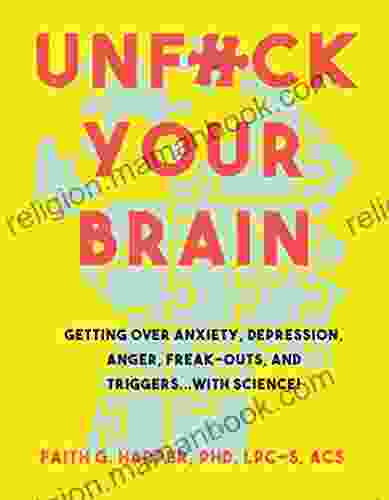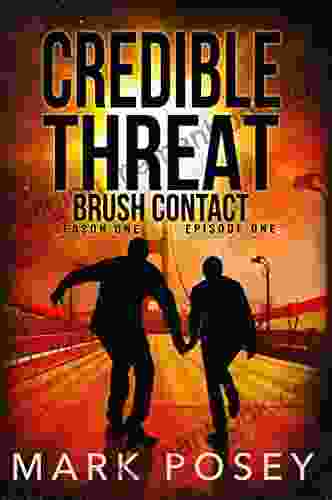English for Academic Research: A Comprehensive Guide for Teachers

English for Academic Research (EAR) is a specialized field of English language teaching that focuses on preparing students to read, write, and present research in English.
4.5 out of 5
| Language | : | English |
| File size | : | 1899 KB |
| Text-to-Speech | : | Enabled |
| Screen Reader | : | Supported |
| Enhanced typesetting | : | Enabled |
| Word Wise | : | Enabled |
| Print length | : | 258 pages |
EAR is an essential skill for students who wish to pursue higher education or careers in academia. In today's globalized world, English is the language of academic discourse, and students who are proficient in EAR will have a competitive advantage in their studies and careers.
Teaching EAR can be a challenging but rewarding experience. This guide will provide you with the tools and resources you need to teach EAR effectively to your students.
1. What is EAR?
EAR is a field of study that focuses on the language skills that are necessary for academic research.
EAR includes the following skills:
- Reading academic texts
- Writing academic papers
- Presenting academic research
- Using academic databases
- Conducting research interviews
- Understanding academic conventions
EAR is not simply a matter of learning English grammar and vocabulary. It is also about understanding the conventions of academic discourse and the different ways that language is used in academic settings.
2. Why is EAR important?
EAR is important for students who wish to pursue higher education or careers in academia.
There are a number of reasons why EAR is important, including:
- English is the language of academic discourse. In today's globalized world, English is the language of academic publishing, conferences, and collaboration. Students who are proficient in EAR will have a competitive advantage in their studies and careers.
- EAR helps students to develop critical thinking skills. Academic research requires students to critically evaluate information, develop arguments, and present their findings in a clear and concise manner. EAR helps students to develop the critical thinking skills that are necessary for success in higher education and beyond.
- EAR prepares students for the workplace. Many jobs in today's economy require workers to be able to read, write, and present information in English. EAR prepares students for the communication challenges that they will face in the workplace.
3. How to teach EAR
Teaching EAR can be a challenging but rewarding experience. The following are some tips for teaching EAR effectively:
- Start with the basics. Before you can teach students the more advanced skills of EAR, you need to make sure that they have a solid foundation in English grammar and vocabulary.
- Use authentic materials. Whenever possible, use authentic materials in your EAR classes. This will help students to learn the language as it is actually used in academic settings.
- Focus on critical thinking skills. EAR is not simply a matter of learning English grammar and vocabulary. It is also about understanding the conventions of academic discourse and the different ways that language is used in academic settings. Help your students to develop critical thinking skills by asking them questions about the texts they read and the research they conduct.
- Provide feedback. Feedback is essential for students to learn and improve their English skills. Provide students with regular feedback on their writing and presentations. This will help them to identify their strengths and weaknesses and to make progress in their EAR skills.
4. Resources for teaching EAR
There are a number of resources available to help you teach EAR to your students.
The following are some of the most popular resources:
- The EAP Foundation (www.eapfoundation.org)
- The International Association of Teachers of English as a Foreign Language (www.iatefl.org)
- The National Council of Teachers of English (www.ncte.org)
- The University of Oxford Press (www.oup.com)
- The Cambridge University Press (www.cambridge.org)
5.
EAR is an essential skill for students who wish to pursue higher education or careers in academia. By following the tips in this guide, you can help your students to develop the EAR skills that they need to succeed.
4.5 out of 5
| Language | : | English |
| File size | : | 1899 KB |
| Text-to-Speech | : | Enabled |
| Screen Reader | : | Supported |
| Enhanced typesetting | : | Enabled |
| Word Wise | : | Enabled |
| Print length | : | 258 pages |
Do you want to contribute by writing guest posts on this blog?
Please contact us and send us a resume of previous articles that you have written.
 Top Book
Top Book Novel
Novel Fiction
Fiction Nonfiction
Nonfiction Literature
Literature Paperback
Paperback Hardcover
Hardcover E-book
E-book Audiobook
Audiobook Bestseller
Bestseller Classic
Classic Mystery
Mystery Thriller
Thriller Romance
Romance Fantasy
Fantasy Science Fiction
Science Fiction Biography
Biography Memoir
Memoir Autobiography
Autobiography Poetry
Poetry Drama
Drama Historical Fiction
Historical Fiction Self-help
Self-help Young Adult
Young Adult Childrens Books
Childrens Books Graphic Novel
Graphic Novel Anthology
Anthology Series
Series Encyclopedia
Encyclopedia Reference
Reference Guidebook
Guidebook Textbook
Textbook Workbook
Workbook Journal
Journal Diary
Diary Manuscript
Manuscript Folio
Folio Pulp Fiction
Pulp Fiction Short Stories
Short Stories Fairy Tales
Fairy Tales Fables
Fables Mythology
Mythology Philosophy
Philosophy Religion
Religion Spirituality
Spirituality Essays
Essays Critique
Critique Commentary
Commentary Glossary
Glossary Bibliography
Bibliography Index
Index Table of Contents
Table of Contents Preface
Preface Introduction
Introduction Foreword
Foreword Afterword
Afterword Appendices
Appendices Annotations
Annotations Footnotes
Footnotes Epilogue
Epilogue Prologue
Prologue David Lummus
David Lummus Nick White
Nick White Bernard Leo Remakus
Bernard Leo Remakus John Vaillant
John Vaillant Naomi Alderman
Naomi Alderman Melanie K Alexander
Melanie K Alexander Fred Genesee
Fred Genesee Adrienne Basso
Adrienne Basso Dave Edwards
Dave Edwards Jonathan Mccollum
Jonathan Mccollum Tango Adams
Tango Adams Adriana French
Adriana French Daniela Gaidano
Daniela Gaidano Justin Mason
Justin Mason Raine Mertz
Raine Mertz J Anton Davis
J Anton Davis Cynthianna
Cynthianna Kimberly A Rogers
Kimberly A Rogers Reshonda Tate Billingsley
Reshonda Tate Billingsley Penina L Baltrusch
Penina L Baltrusch
Light bulbAdvertise smarter! Our strategic ad space ensures maximum exposure. Reserve your spot today!

 Deion Simmons(G Alto Flute) La Gazza Ladra Overture For Flute Quartet: The Thieving Magpie...
Deion Simmons(G Alto Flute) La Gazza Ladra Overture For Flute Quartet: The Thieving Magpie... Gage HayesFollow ·15.9k
Gage HayesFollow ·15.9k Jeremy MitchellFollow ·11.5k
Jeremy MitchellFollow ·11.5k Cody RussellFollow ·7.5k
Cody RussellFollow ·7.5k Dean ButlerFollow ·4.7k
Dean ButlerFollow ·4.7k Jimmy ButlerFollow ·19.6k
Jimmy ButlerFollow ·19.6k Morris CarterFollow ·16.1k
Morris CarterFollow ·16.1k Herman MitchellFollow ·6.7k
Herman MitchellFollow ·6.7k Henry GreenFollow ·16.9k
Henry GreenFollow ·16.9k

 David Peterson
David PetersonUnveiling Eleven of the Wheel of Time: A Journey Through...
In the vast and intricate...

 Curtis Stewart
Curtis StewartEbony Jay Rice: A Rising Star in the Entertainment...
Ebony Jay Rice is a force to be reckoned...

 Matt Reed
Matt ReedNavigating Mental Health with Science: Overcoming...
Mental health is an integral part of...

 Guillermo Blair
Guillermo BlairFormer Magistrate's Poetic Reflections on Love and...
In the hallowed halls...

 Corey Green
Corey GreenOf the Dead: William Burroughs' Post-Beat Masterpiece
William S. Burroughs' Of the...
4.5 out of 5
| Language | : | English |
| File size | : | 1899 KB |
| Text-to-Speech | : | Enabled |
| Screen Reader | : | Supported |
| Enhanced typesetting | : | Enabled |
| Word Wise | : | Enabled |
| Print length | : | 258 pages |










